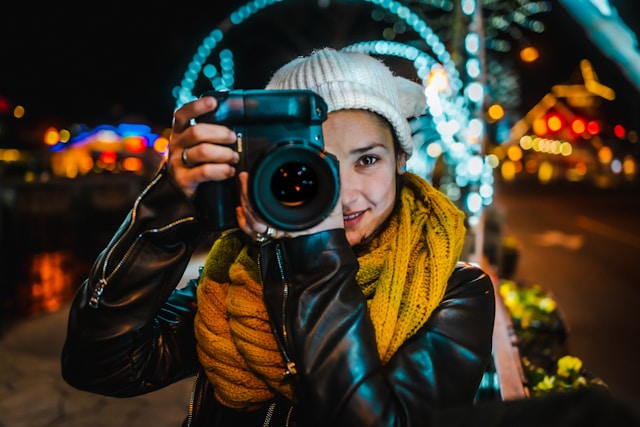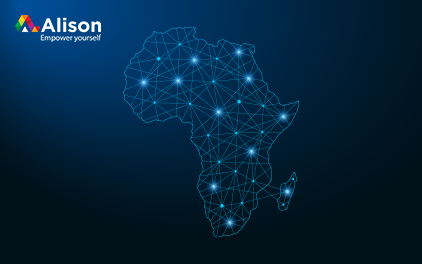Women make the world go round. They are leaders. Be it in the home, communities, the sports arena, arts, and culture, or even leading Fortune 500 companies, there is no limit to what women can accomplish. For years and throughout history, women have been blazing trails and making incredible and life-changing contributions to their worlds. The impact of these reverberates across the world to this day. Many have come and gone, paving the way for today’s generation of women to carry the torch in their own fields. On International Women’s Day, we celebrate and recognise the amazing contributions of some of these women.
International Women’s Day
Every year on March 8th, we celebrate International Women’s Day (IWD). This day is set aside annually to celebrate the social, cultural, economic, and political achievements of women across the globe. It’s also a significant day to highlight the advocacy for women’s rights globally.
It is through the collective efforts and actions of everyone globally that International Women’s Day can be impactful. This year, the focus is on #EmbracingEquity.
Equity means treating every person fairly and according to their respective needs. Where the needs may be different, the rights, benefits, and opportunities available should be equal.
Celebrating (some) inspirational women
‘Each time a woman stands up for herself, without knowing it possibly, without claiming it, she stands up for all women.’ – Maya Angelou
We thought we should share some of the courageous acts by women throughout history. From the famed history-makers to lesser-known names, here are some wonder women who have done incredible things. Be inspired:
- Marie Curie (1867-1934)
Marie Curie, a French and Polish chemist, and physicist is a two-time Noble laureate. The only woman to achieve this incredible feat. She moved to Paris, France to continue her education and pioneered work in radioactivity and cancer treatment protocols. She discovered radium and polonium, and through this discovery and developing radiology and other treatments was able to save countless lives of cancer patients. Marie is also lauded as being the creator of portable x-ray machines and which were used to save the lives of many soldiers on the front lines of World War I.
- Bessie Coleman (1892 – 1926)
Bessie, a black woman in the US, was prevented from acquiring her pilot’s license because she was black and a woman. This did not stop her dreams. Bessie moved to France and soon became the first African American woman of Native-American roots, to earn her aviation license.
- Maria Montessori (1870 – 1952)
Maria Montessori is the creator of the Montessori style of education. Here, she spearheaded the thought that children deserve not only the best education but a choice in their learning. Her education system, which has been adopted in many countries, focuses on the science of child development and sets this classroom apart from traditional teaching methods.
- Coretta Scott-King (1927 -2006)
Coretta Scott-King is the wife of the late American civil rights movement leader, Martin Luther King Jr. She held her own as a leader in the 50s and 60s as an author and fought for the rights and dignity of all victims who were discriminated against.
- Katharine Graham (1917-2001)
Katharine Graham, Pulitzer Prize winner for her autobiography, Personal History in 1998, sat as the editor and chairman of the Washington Post for 20 years (1963-1991). Under her leadership, the Post broke the infamous Pentagon Papers and the Watergate scandal, making it one of the most highly regarded publications in the world. She is also the first-ever female CEO of a Fortune 500 company. She broke the glass ceiling and let all women know that they can reach the pinnacle of their dream. Her life was inspirational and her story, played by Academy award-winner Meryl Streep, can be seen in the hit movie The Post.
- Wangari Mathaai (1940 – 2011)
Wangari Mathaai is a Kenyan-born social, environmental and political activist. Wangari was the first woman in Central and East Africa to obtain a PhD and in 1977, she founded the Green Belt Movement. This NGO encouraged women to be part of the fight against deforestation and environmental degradation. Since its inception, the Green Belt Movement has planted over 50 million trees. Wangari shone the African flag high as the first African woman to be awarded the Nobel Peace Prize for her contribution to sustainable development, democracy, and peace.
- Ruth Bader Ginsburg (1933-2020)
Ruth Bader Ginsburg was the co-founder of the Women’s Rights Project at the American Civil Liberties Union. She was also appointed as an Associate Justice of the Supreme Court of the United States. From her time on the bench, she advocated for women’s rights and supported various LGBT initiatives and movements against racial equality.
- Malala Yousafzai (1997 – )
Malala Yousafzai was just 15 years old when she was shot in the head by terrorists while on her way to school. As a young activist, she was vocal about the prohibition of the education of girls imposed by the Pakistani Taliban group. She survived the assassination attempt and two years later, at age 17, she was jointly awarded the 2014 Nobel Peace Prize for her sacrificial and continued efforts to fight for education and children’s rights. This award made her the youngest recipient of the award.
- Kalpana Chalwa (1962-2003)
Kalpana soared into the headlines in 1997 as the first Indian woman to be named a mission specialist by NASA and orbit into space on the Space Shuttle Columbia. This journey orbited the earth over 250 times over a two-week time span. Her second trip to space in 2003 completed over 80 experiments over 16 days. Unfortunately, she and her entire crew of astronauts did not make it back to earth when their spaceship disintegrated when it attempted to reenter earth’s atmosphere.
- Katherine Johnson (1918-2020)
Katherine Johnson is now globally recognised as the brains behind the calculations that propelled John Glenn (astronaut) into orbit in 1962. She also went on to do the computations that sent Apollo 11 to the moon. Her story was made into the 2015 box-office hit, Hidden Figures, and she went on to receive the Presidential Medal of Freedom from former US president Barack Obama. After her death in 2021 at the age of 101, the Northrop Grumman group named a spaceship after her.
These women, across different generations and in different streams, did what the world told them they couldn’t. They defied the odds, overcame unique challenges, and cemented their place in history for women to follow. They and hundreds of other women whose names we don’t know are reminders of what is possible and to be celebrated for years to come.
How you can celebrate IWD
Women should be celebrated every day but for this marked occasion, you can get involved in several ways.
- Attend a virtual IWD talk/event.
- Donate and/or help raise funds for a charity.
- Go out for drinks or lunch with the women in your world and celebrate each other.
- Share an inspiring post on social media and hashtag #IWD2023 and #EmbraceEquity, in line with this year’s global campaign theme.
- Have hard but important conversations about the need for equal and enough opportunities.
- Show up for yourself and other women – we rise by lifting others.
- Buy an inspiring woman’s autobiography and read their story.
These activities are a great way to shine a light on IWD, but they are short-term. What the IWD movement needs are long-term initiatives that will keep the spotlight on the value of uplifting from every background and having worthwhile discussions that will lead to changed mindsets. Because, as G.D. Anderson rightly puts it, “Women are already strong. It’s about changing the way the world perceives that strength”.
Here’s to strong women. May we know them. May we be them. May we raise them. To everyone, everywhere, International Women’s Day belongs to you.




